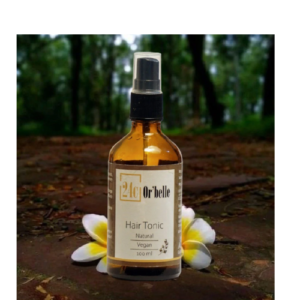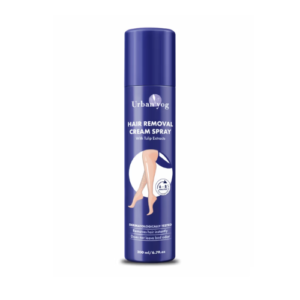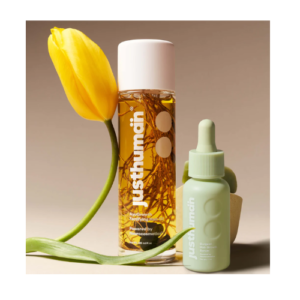When it comes to hair care, two popular products often come to mind: hair tonic and hair oil. Both claim to strengthen hair, prevent hair fall, and promote healthier growth, but they work in different ways. If you’re confused about which one to choose, this comparison will break down the benefits, uses, and differences between hair tonics and hair oils to help you make an informed decision.
This article will also provide recommendations for both products, highlighting some of the best hair tonics and oils on the market.
What is Hair Tonic?
Hair tonic is a water-based or alcohol-based solution that is designed to improve scalp health, reduce hair fall, and make hair look shinier and more manageable. It typically contains herbal extracts, vitamins, and essential oils that nourish the scalp and hair roots.
Hair tonics are lightweight, non-greasy, and can be applied on both dry and damp hair. They are often used to refresh the scalp, stimulate hair growth, and improve the overall appearance of hair without weighing it down.
Key Benefits of Hair Tonic:
- Reduces Hair Fall: Many hair tonics contain ingredients like caffeine, biotin, and herbal extracts that strengthen hair roots and reduce hair fall.
- Stimulates Hair Growth: Tonics improve blood circulation to the scalp, encouraging hair growth.
- Non-Greasy: Unlike oils, hair tonics are lightweight and don’t leave a greasy residue.
- Improves Shine and Manageability: Hair tonics can make hair more manageable, adding a natural shine.
- Quick Absorption: Hair tonics are quickly absorbed into the scalp, allowing you to style your hair right after application.
What is Hair Oil?
Hair oil, as the name suggests, is a more concentrated oil-based product that deeply nourishes the scalp and hair. Hair oils have been used for centuries in various cultures for their ability to strengthen hair, moisturize the scalp, and reduce frizz. They are often infused with essential oils like coconut, argan, jojoba, and castor oil, known for their restorative properties.
Hair oils are best used as a pre-shampoo treatment or a deep conditioning mask to hydrate and repair dry, damaged hair. They provide intense moisture to both the scalp and the hair shaft, making them ideal for those with dry or frizzy hair.
Key Benefits of Hair Oil:
- Deep Nourishment: Hair oils penetrate deep into the scalp and hair follicles, providing intense hydration and nourishment.
- Prevents Dryness and Dandruff: Oils help in moisturizing the scalp, preventing dandruff, and flakiness.
- Strengthens Hair: Regular oiling can strengthen hair from root to tip, reducing breakage and split ends.
- Tames Frizz: Hair oils are excellent for managing frizzy hair and adding a healthy shine.
- Prevents Damage: Oils form a protective barrier around the hair shaft, shielding it from heat and environmental damage.
Hair Tonic vs. Hair Oil: A Comparison
1. Texture and Feel
- Hair Tonic: Hair tonic is light, non-sticky, and fast-absorbing, making it ideal for everyday use. It doesn’t leave a greasy residue, which is perfect if you don’t want to weigh your hair down.
- Hair Oil: Hair oil is thicker and heavier, designed to coat the hair and scalp for deep nourishment. While beneficial, it can leave your hair feeling greasy if not washed off properly.
2. Application
- Hair Tonic: Hair tonic can be applied directly to both dry and damp hair, making it a quick and easy addition to your daily routine. It’s great for styling and taming flyaways without needing to wash it out.
- Hair Oil: Hair oil is typically applied before shampooing as a deep-conditioning treatment. It’s best left on for a few hours or overnight before washing it out with shampoo.
3. Benefits for Hair Type
- Hair Tonic: Hair tonic is suitable for all hair types, but it is especially beneficial for people with oily hair or thin, flat hair. Since it is lightweight, it won’t add extra oiliness or make hair feel heavy.
- Hair Oil: Hair oil is ideal for dry, thick, or frizzy hair. It deeply moisturizes and adds shine, but may not be the best choice for fine or oily hair due to its heavier texture.
4. Hair Growth
- Hair Tonic: Many hair tonics are designed to stimulate hair growth by improving blood circulation in the scalp and nourishing hair follicles. Ingredients like caffeine or herbs such as bhringraj or amla are often used to support new hair growth.
- Hair Oil: Hair oil nourishes hair roots and prevents breakage, which indirectly supports healthier hair growth. Oils like castor oil and rosemary oil are particularly well-known for their hair growth-promoting properties.
5. Ease of Use
- Hair Tonic: Because it’s non-greasy, hair tonic can be used daily, without needing to wash your hair afterward. It can be applied in the morning or before bed for lasting scalp care.
- Hair Oil: Hair oil is best used as a treatment, meaning it should be washed out. The application process can be more time-consuming compared to hair tonics, especially if left in overnight.
6. Scalp Health
- Hair Tonic: Hair tonics often focus on scalp health, helping to soothe irritation, reduce dandruff, and improve overall scalp circulation. This makes it a great option for people dealing with scalp issues like itchiness or flakiness.
- Hair Oil: Hair oil is also beneficial for scalp health, especially in preventing dryness and dandruff. It hydrates the scalp deeply but may need thorough washing to avoid excess buildup.
Which Should You Choose: Hair Tonic or Hair Oil?
The choice between hair tonic and hair oil largely depends on your hair type and needs.
- If you have oily or thin hair, hair tonic is a better option. It’s lightweight, non-greasy, and can be used regularly without making your hair feel heavy. It’s ideal for those who want to control hair fall, promote hair growth, and improve scalp health without the mess of heavy oils.
- If you have dry, thick, or frizzy hair, hair oil is your go-to product. Its deep-nourishing formula will hydrate your hair, tame frizz, and strengthen your strands. Hair oil is excellent for those looking to repair damage and add intense moisture to their hair.
Recommended Products for Your Hair Care Routine
Best Hair Tonic:
- Alpecin Caffeine Liquid Hair Tonic – Designed to stimulate hair growth and prevent hair fall, this tonic is ideal for strengthening hair and boosting scalp health.
- Banyan Root Hair Tonic – Rich in natural ingredients like bhringraj and amla, this tonic promotes healthy, lustrous hair while controlling hair fall.
Best Hair Oil:
- Moroccan Argan Oil – Known for its ability to deeply nourish and hydrate, this oil is perfect for repairing dry, damaged hair.
- Coconut Oil – A time-tested remedy for hair growth and moisture, coconut oil provides deep hydration and scalp care.
Both hair tonics and hair oils offer incredible benefits for hair health. If you’re looking for a lightweight, daily-use product that can strengthen hair and stimulate growth, a hair tonic might be the best choice for you. On the other hand, if deep hydration and frizz control are what you need, hair oil could be your solution.




